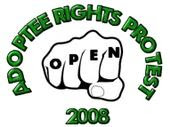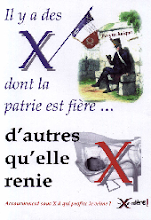
MEMPHIS COMMERCIAL APPPEAL
March 20, 2008
Decades after adoption, two sisters long for siblings left at orphanage
By Michael Lollar
Adoption was like a "voodoo word" in Mary Lamb's family. She and her younger sister weren't allowed to ask questions about where they came from or why.
Nashville's Mary Ann Lamb is searching for her siblings who were separated after leaving the St. Peter Orphanage in their youth in Memphis. Mary Ann is shown with her husband, Chuck, and a photo of her when she lived in the orphanage.
Nashville's Mary Ann Lamb is searching for her siblings who were separated after leaving the St. Peter Orphanage in their youth in Memphis. Mary Ann is shown with her husband, Chuck, and a photo of her when she lived in the orphanage.
Mary Lamb, 55, of Nashville was 3 when she and her baby sister Teresa were adopted. After learning they'd left three older siblings at St. Peter Orphanage, Lamb has tried to find them but had no luck. "It's killed me," she said of not knowing the fate of her two sisters and brother.
Mary Lamb, 55, of Nashville was 3 when she and her baby sister Teresa were adopted. After learning they'd left three older siblings at St. Peter Orphanage, Lamb has tried to find them but had no luck. "It's killed me," she said of not knowing the fate of her two sisters and brother.
Loretta Williams in 1963
The two youngest children in the Williams family, Mary (left) and Teresa, were adopted by a Middle Tennessee couple. For years, the two girls did not know they had any other siblings. Bill Waugh Special to The Commercial Appeal
The two youngest children in the Williams family, Mary (left) and Teresa, were adopted by a Middle Tennessee couple. For years, the two girls did not know they had any other siblings. Bill Waugh Special to The Commercial Appeal
"When my adoptive mom and dad were alive, that was constantly embedded in us, and we learned to stay away from it, not to upset them."
Mary was 3. Her sister Teresa was 1 when the nuns of St. Peter Orphanage here delivered them to a childless family in Madison, just north of Nashville. The family owned restaurants, and the girls would grow up comfortably, but with questions that grew as they did. At first, they were too young to understand adoption or to know what to ask, says Mary. As teenagers, there were questions but no answers.
It has been more than 50 years since their childhood journey began. It led recently to the classified advertising section of The Commercial Appeal with a 2-by-4-inch ad that displayed little of the emotion Mary has harbored since learning, little by little, that she and Teresa left behind two older sisters and a brother who remained in the Memphis orphanage until they "aged out" at age 18, then, seemingly, vanished.
"It's killed me," says Mary, 55, who now operates a trucking and freight company with her husband in Nashville. "We tried for many years to get information -- when we were in our 20s and 30s -- from our adoptive mom and dad. They said we didn't need to know. Even before dad died in 2001, I tried to get him to tell me and he wouldn't. They probably just didn't want us hurt."
As adults, Mary and Teresa, who now lives in Idaho, began their search. It was before Tennessee's adoption records were opened to children seeking the identities of birth parents or lost siblings. The hitch was that if the state found those relatives, it would be up to the relatives whether they would agree to be contacted. Mary and Teresa were determined to find their brothers and sisters without the state being able to tell them what they couldn't do.
As they grew up, Mary and Teresa married and had lives of their own. Mary and her husband, Chuck Lamb, a former Army intelligence officer, have been together 30 years, devoting much of their lives to building their trucking company. Teresa had children and moved from Tennessee. They were occupied with the toil of living.
Still, they couldn't let go of the past. "We didn't really know how to go about it," says Mary, but they asked around. They wrote to the state. They contacted the orphanage. Each time, they hit a dead end, says Chuck Lamb.
Recently, though, Mary developed a mild case of multiple sclerosis that sometimes causes her to walk with a cane. She wonders about her family's health history, says Chuck. "But, more than that, she just wants to know something about her family," he says.
As Mary and Teresa became more serious they dredged up as many memories as possible. The biggest break came when one of them remembered their adoptive parents telling them once that they were baptized as infants. It was an unguarded moment for the secretive couple who saw no harm in telling their girls it was in a Catholic church in Dyersburg, where their birth parents had lived. Mary and Teresa contacted the church, which sent baptismal records to them as confirmation of the adoptions. On the records was a revelation -- the names of birth parents "Delbert Williams and Margaret Estes."
"I don't know why they had different last names. I just don't know how that pans out," says Mary, who was even more mystified when she and Teresa were unable to find any definitive clues about the couple. "They may have moved from somewhere else to Dyersburg. One person thinks my father may have worked a farm for someone else, and my mom, I guess, took care of us (the five children)." The father may have contracted tuberculosis and been unable to work, someone suggested.
Again, Mary and Teresa receded into their own daily lives, letting the search grow cold until, finally, there was another breakthrough. Their calls to St. Peter did not go completely unheeded. A woman, a social worker who once worked at the orphanage, agreed to talk to them. The woman, like Mary and Teresa, grew up in an era in which adoption rules were supposed to be inviolable. Mary slowly gained the social worker's confidence and promised her confidentiality. It led to names of the lost siblings and to the schools they attended in Memphis. That led to high school annuals and to photographs that to Mary were like looking into a mirror.
"There's no doubt it's them. The noses, the chins, the hair, their foreheads. We all look alike. We are all small-framed people, even the brother," she says.
The brother's name was James Thomas Williams. He attended Catholic High School. The sisters' names were Rose Marie and Loretta. They used their birth father's last name, Williams. The smallest details now are tantalizing links that Mary hopes will lead to a reunion. Rose Marie graduated in 1960. She was in the Sacred Heart business education club and Quill and Scroll. She was class treasurer, home room president, a member of the glee club. She played basketball and volleyball. She acted in a school play and had perfect attendance. Loretta graduated in 1963 and had been a member of the student council, the French club, athletic club and business education club. There was less detail about James, who used the nickname "Jimmy" and graduated in 1968.
"It's just me and my sister now. We don't have any of the blood family. We just think that before we get too much older or aren't able to get around we want to know about them," says Mary, grateful for the one sister she has always known.
It was Chuck who placed the ad with Mary's brother and sisters' names in large letters at the top and the simple message: "Mary Ann & Teresa Searching for you. Call Chuck ."
Contact reporter Michael Lollar at . To read more stories by him, click on Contact Us at commercialappeal.com and click on his name.
Link to article








No comments:
Post a Comment